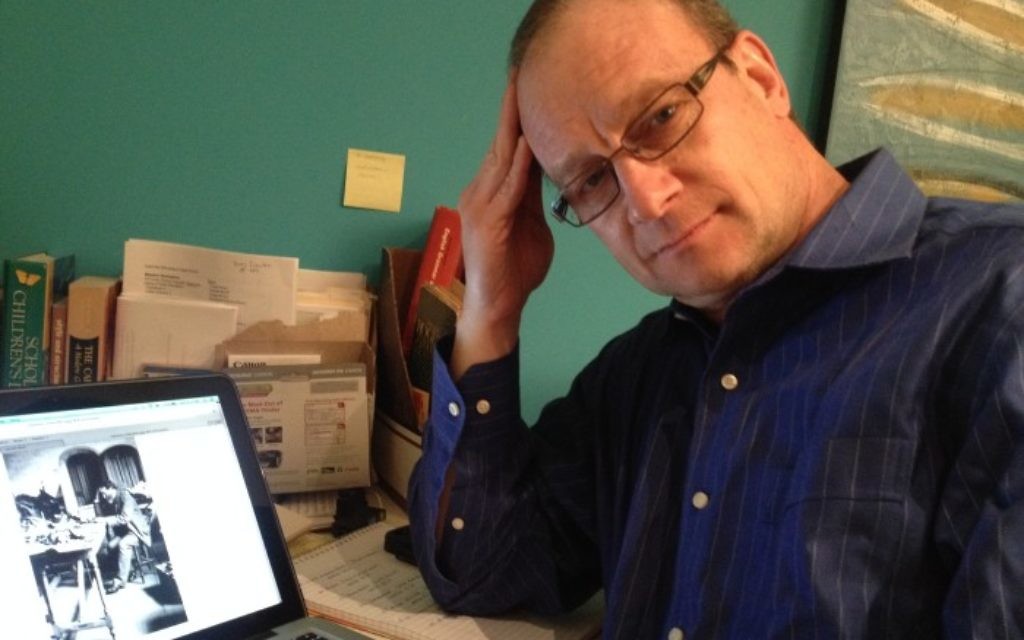More Important Than Communal Pride?
From Where I Sit
Does it matter that there are only two Jews in the Georgia General Assembly?
Does it matter that there are “only” 29 Jews in Congress?
Get The AJT Newsletter by email and never miss our top stories Free Sign Up
How important is it that Jewish values are represented in legislative bodies by actual Jews (regardless of their degree of observance)?
“Serving in the state legislature is consistent with Jewish values, which emphasize community engagement and repairing the world,” said David Adelman, a Democrat who left the state Senate when he became the U.S. ambassador to Singapore in 2010.
Certainly, values that Jews hold dear — and we may not agree on those values, and they may differ by political affiliation — have their advocates among non-Jews serving in state legislatures or Congress.
Even at 1.3 percent of Georgia’s population, Jews are underrepresented among the General Assembly’s 180 House and 56 Senate members. The Jews under the Gold Dome this session are Rep. Michele Henson, D-Stone Mountain, and Sen. Renee Unterman, R-Buford.
Why so few?
“It’s a great honor to serve in the General Assembly and be the voice of your community in the legislative body of the state, but by the same token it requires considerable sacrifice,” said former Rep. Mike Jacobs, a Republican who now is a state judge in DeKalb County.
“The majority of Jews are left of center. With the GOP growth — when I came into office, it was a one-party state, Democrat; now it is one-party GOP — there are less opportunities for Democrats,” said Mitchell Kaye, another former House Republican.
There are some 200 Jews among the nation’s 5,400 state legislators, and two Jews among the nation’s governors.
Meanwhile, the first Jew to win a statewide partisan race in Georgia still holds that office. Sam Olens, the former chairman of the Cobb County Board of Commissioners, was elected attorney general in 2010 and re-elected in 2014.
Georgia Trend recently named Olens its Georgian of the Year, calling him “a man who clearly enjoys his job but might be expected to set his sights a bit higher.”
Looking to the 2018 election cycle, Olens told the magazine: “I do not have a plan. I may run for re-election. I may run for another office. I may not run at all. I honestly don’t know.”
On the national stage, Jews make up 2.1 percent of the population but account for 4.4 percent of the U.S. House of Representatives and 10 percent of the U.S. Senate.
Five years ago Nathan Guttman wrote in The Forward, “The massive overrepresentation of Jews on Capitol Hill, long a source of pride for the community, has been shrinking in recent years and could drop in the coming election cycle from 41 to the mid-30s, a level last seen 15 years ago.”
That shrinkage has continued. In the 114th Congress, there are 19 Jews in the 435-member House and 10 in the 100-member Senate. By party affiliation, 28 are Democrats and just one a Republican.
Further decline is likely because Sen. Barbara Boxer, D-Calif., and Rep. Steve Israel, D-N.Y., have announced their intention not to seek re-election this year.
Beyond communal pride, does it matter that the number of Jews on Capitol Hill is declining?
How critical is a sizable Jewish presence to maintain social programs championed for decades by Jewish members of Congress? How critical is a sizable Jewish presence to maintain or increase U.S. foreign aid and other forms of support to Israel?
Jews have held elected office at all levels of government — from town councils and city halls to statehouses and Congress — save one.
As Al Gore’s running mate in 2000, Sen. Joseph Lieberman, D-Conn., was the first Jew on the presidential ticket of a major political party.
Now another Jewish senator, Bernie Sanders, D-Vt., is seeking to be his party’s standard-bearer in the 2016 election.
Does it matter that no Jew has occupied that most important address in America: 1600 Pennsylvania Ave.?





comments